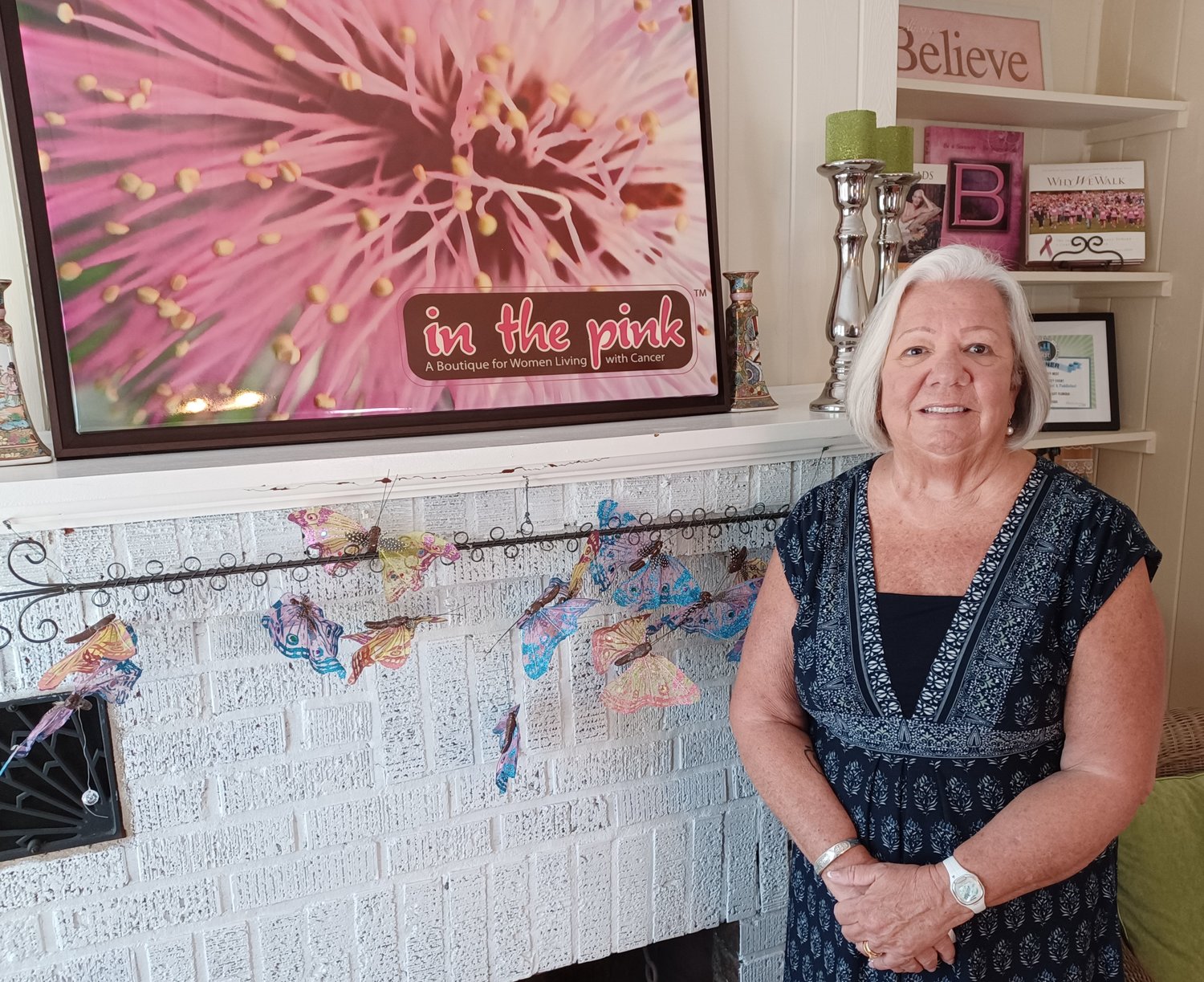Jeri Millard
When Jeri Millard found herself unhappy with the health care she was receiving for her breast cancer several years ago, she moved from California to Northeast Florida. It was a decision she never regretted, calling this area a medical Mecca. Today, she runs In The Pink, an all-in-one Jacksonville Beach facility that caters to the needs of cancer patients and survivors.
Tell me about your shop.
We opened in 2009. After having cancer twice myself, I realized that it was very inconvenient as a cancer patient to have to run all over town looking for everything. And I thought, why couldn’t we do that all in one place?
And so, I looked long and hard, and once this place became available, I just knew it was kind of the right place. I didn’t want it to be in a health facility, and I didn’t want it to be in a strip mall. We wanted to make it as user-friendly as possible.
As a nonprofit, we have everything here under one roof. And a lot of the items are covered by insurance. We’re under what’s called the durable medical equipment umbrella. Durable medical is generally what people think of as wheelchairs, knee scooters, those kinds of things. But durable medical also has mastectomy things like prostheses and mastectomy bras and wigs and compression and those kinds of items.
For our clients that are insured, they get a prescription and bring it to us, and we fit them with whatever’s needed and file all the insurance for it. Any revenue stays here. And then, when people come in that have no insurance or are severely under-insured, they get the items that they need for free. So, it’s kind of a simple concept. Those of us who have insurance are taking care of those who are in need.
You mentioned that you are a cancer survivor yourself.
Yeah. The second time I had cancer was breast cancer, and my husband was retiring from the Navy. We lived in Hawaii, and he was at Pearl Harbor. The day he retired was the day I was diagnosed.
So, he had already taken a job in San Diego with Lockheed Martin.
Of course, I got to San Diego, and I didn’t know anyone. I wasn’t familiar with the area and didn’t have any friends or relatives or anyone there. So, I had to rely on the oncologist or the social worker at the oncology office to let me know about things. Everything was spread out. … It was very inconvenient. I remember in one day I had five appointments at five different places. I didn’t feel good; all I could do was shuffle my feet. So, my husband was driving me everywhere. And I thought, this is crazy. Why am I doing this? I just thought it could be done better. So, that’s what we do here.
I decided to do it as a nonprofit, because I was doing it to help others, not to make money.
I have to raise about $100,000 a year to keep the doors open. And that’s been hard to do in the last couple of years with the pandemic. We were allowed to stay open as long as we kept everything clean.
We did change how we went about our business. Because we could stay open, things were dictated to us as to how. Everything had to be scoured after every client. So, we went to appointments only.
And we’ve stuck with that. For one thing, I think that our clients appreciate the fact that there’s not a lot of other people in here.
Tell me about what you offer here.
We’re certified fitters for mastectomy post-surgical garments and prostheses. We take training in how to fit wigs. And we attend seminars all the time.
So, we have wigs, hats, scarves, radiation cream. We have free yoga once a week here. And compression garments, because a lot of people have lymphedema, especially in the cancer world.
You serve more than just people with breast cancer.
Oh yes, we’ve taken care of all cancers. The term “in the pink” means “you’re feeling better.” It’s an old slang term, I know, but because of the word “pink,” everybody just assumes it’s all breast cancer.
What is the name of your nonprofit?
In The Pink Boutique Inc.
What is your website?
Jaxinthepink.com
Do you have any special plans for the future?
One of my goals has always been to have a mobile unit. And I am really looking for some serious donors who are interested in funding a mobile unit.
Because Jacksonville is so big, land wise, and we have so many outlying areas where it’s a long way for them to come to Jacksonville. And if we could go to them on a regular basis …
What do you like best about what you do?
It’s not like job. This is really a mission for those of us who are working here. No one makes very much money. And I don’t have health benefits for all my people and all that kind of stuff. They do it because they’re passionate about the cause. And most of us are survivors that work here.
I’ve had 20,000 clients over 13 years. I was worried that I would open the doors and no one would come. That did not happen.
… But Jacksonville’s a great place to live, I think. It’s really a gem of a place.







